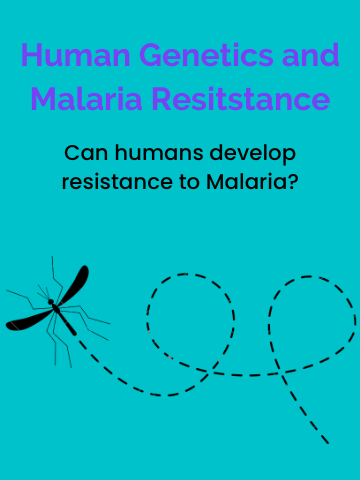Human Genetics and Malaria Resistance
Can human genes develop resistance to Malaria?
What is it about?
Medicine and Health
Science and Maths
Malaria is a dangerous disease caused by a pathogen of parasitic origin. It has been a threat for humanity for at least 4000 years. Currently, young children are the most susceptible group to the infection and despite existing progress in medical treatment and prevention, there are still around 400,000 deaths every year. African and South Asian countries are particularly at risk. <br>
As the disease has been present among humans for a considerable amount of time, this means it has exerted selective pressure on the human population. Such pressure led to the appearance of a number of mutations that decreased the severity of the disease course, and made people less likely to die from the disease.
